RIGHTS AND OBLIGATIONS OF PATIENTS
INFORMATION REMINDER
(according to the Code of the Republic of Kazakhstan dated July 7, 2020 No. 360-VI HRK "On people's health and the health care system")
Section 2
PUBLIC HEALTH PROTECTION
Chapter 12
RIGHTS AND OBLIGATIONS OF PERSONS IN THE FIELD OF HEALTHCARE
Article 76. Guarantee of rights in the field of healthcare
- The state guarantees to citizens of the Republic of Kazakhstan are as follows:
- equal access to medical assistance;
- good quality of medical assistance;
- good quality of drug provision;
- availability, efficacy and safety of medicines;
- carrying out measures for the prevention of diseases, the formation of a healthy lifestyle and healthy nutrition;
- freedom of reproductive choice, protection of reproductive health and observance of reproductive rights;
- sanitary-epidemiological welfare.
- The Republic of Kazakhstan guarantees the citizens of the Republic of Kazakhstan protection from any forms of discrimination and stigmatization due to the presence of any diseases and conditions.
Article 77. Rights of citizens of the Republic of Kazakhstan
- Citizens of the Republic of Kazakhstan have the right to:
- a guaranteed volume of free medical care;
- medicines and medical products within the guaranteed volume of free medical care and (or) in the system of compulsory social health insurance;
- free choice of a physician and a medical facility;
- medical nutrition in the event of a patient’s treatment in a hospital;
- additional medical assistance in excess of the guaranteed volume of free medical care and (or) in the system of compulsory social health insurance at the expense of their own funds, funds of organizations, the system of voluntary medical insurance and other sources in accordance with the legislation of the Republic of Kazakhstan;
- medical and other services on a paid basis;
- medical assistance provided outside the Republic of Kazakhstan at the expense of budgetary funds, given indications, in the manner prescribed by the authorized body;
- the receipt and submission of relevant documents certifying the fact of temporary disability, in accordance with the legislation of the Republic of Kazakhstan;v
- free and regular receipt from state bodies, organizations and an attending physician, within their competence, of reliable information on methods of prevention, diagnosis, treatment of the disease and medical rehabilitation, clinical trials, factors affecting health, including the state of the environment, working conditions, life and recreation, healthy diet and food safety;
- receive information from state bodies, independent expert organizations and entities in the field of distribution of medicines and medical products on the safety, efficacy and good quality of medicines and medical products sold;
- the protection of information falling under medical confidentiality;
- compensation for harm caused to health in the provision of medical assistance in accordance with the legislation of the Republic of Kazakhstan;
- protect their rights and legitimate interests in the field of health protection in accordance with the legislation of the Republic of Kazakhstan;
- appeal against actions (inaction) of healthcare professionals and pharmaceutical workers in the manner prescribed by the laws of the Republic of Kazakhstan;
- petition higher authorities for involving independent experts in case of disagreement with the findings of state medical examination;
- voluntary declaration of will about the opportunity to act as a donor;
- declaration of will of consent or refusal to remove their tissues (parts of tissue) and (or) organs (parts of an organ) after death for the purpose of transplantation in the manner prescribed by this Code;
- give informed consent or refusal for treatment and other medical interventions, including preventive vaccinations;
- co-payment;
- pain relief in the treatment of chronic incurable diseases;
- get information in an intelligible form on the state of health, including information on the results of medical examination, diagnosis and prognosis of the disease, methods of providing medical care, associated risk, possible types of medical intervention, its consequences and the results of providing medical assistance;
- get reliable and timely information on factors that contribute to the preservation of health or have a negative impact on them, including information on the prevention of diseases, sanitary-epidemiological welfare, the state of the environment, the potential danger to human health from the work performed and services provided, rational nutritional standards, quality and safety of products, goods and services;
- other rights in accordance with the laws of the Republic of Kazakhstan.
- Women have the right to decide on their motherhood and free choice of modern methods of preventing unwanted pregnancy for the purposes of family planning and protecting their health.
- medical examinations, dynamic observation and health improvement of women of reproductive age;
- medical treatment of common diseases that directly affect the reproductive health of women and the health of the child when admitted to a hospital for the care of a sick child.
The right of citizens to maternity protection is exercised through:
Article 78. Children’s rights
- In addition to the rights provided for in Article 77 of this Code, every child has the right to:
- modern and effective medical services and means of treating diseases and health recovery;
- education in the field of health protection;
- preventive medical examinations and dynamic observation, treatment, drug provision, health improvement and vaccination;
- the provision of medical services during the recovery period and organized recreation in the manner prescribed by the authorized body;
- sanitary and hygienic education, training and work under conditions appropriate for his/her physiological characteristics and state of health, excluding the influence of adverse factors on him/her;
- obtain medical documentation on the state of health on a free basis at the place of his/her registration when becoming a student and being employed;
- obtain information on the state of health in an intelligible form;
- obtain information in an intelligible form on a healthy lifestyle and proper nutrition, on the dangers of smoking, the use of psychoactive substances;
- obtain information in an intelligible form on the protection of reproductive health;
- palliative care.
- Minors aged sixteen and over have the right to informed consent or refusal to preventive, consultative and diagnostic assistance, except for surgical interventions, artificial abortion, which are performed with the consent of their parents or legal representatives.
- When treating children under five years of age in a hospital, as well as sick older children who, in doctors’ opinion, need additional care, the mother (father) or another person directly caring for the child is given the opportunity to stay with him/her in the medical facility and a sheet or certificate of temporary disability in accordance with the legislation of the Republic of Kazakhstan.
A nursing mother of a child up to one year of age is provided with free meals by a medical facility for the entire period of childcare.
- When treating children under five years of age in outpatient and hospital-replacing conditions, as well as sick older children who, in doctors’ opinion, need additional care, the mother (father) or another person directly caring for the child is given the opportunity to stay with him/her and a sheet or certificate of temporary disability in accordance with the legislation of the Republic of Kazakhstan.
- . When receiving specialized medical assistance, medical rehabilitation, as well as palliative medical care in stationary conditions, school-age children have the right to continue education in the manner prescribed by the authorized body together with the authorized body for education.
Healthcare organizations providing medical assistance to children create conditions for their games, recreation and education.
- Children with disabilities, infected with HIV have the right to receive free medical-pedagogical correctional support in educational institutions, healthcare organizations in accordance with the legislation of the Republic of Kazakhstan.
Children infected with HIV have the right to stay in children’s homes and other healthcare organizations and educational institutions.
Children born to mothers infected with HIV have the right to receive free adapted milk formulas in accordance with established nutritional standards.
- The list of medical contraindications for placing children in a children’s home and educational institutions, organizations for orphans and children left without parental care is approved by the authorized body.
- Orphans, children left without parental care and disadvantaged children up to the age of three years inclusive may live in state-run medical facilities in the manner prescribed by the authorized body.
Article 80. Obligations of citizens of the Republic of Kazakhstan
Citizens of the Republic of Kazakhstan are obliged to:
- take care of their health, bear joint responsibility for the preservation and strengthening of individual and public health;
- pay contributions for compulsory social health insurance in accordance with the Law of the Republic of Kazakhstan “On Compulsory Social Health Insurance”;
- take preventive medical examinations, screening tests;
- follow the prescriptions of healthcare professionals related to individual and public health;
- take part in the process of managing their own health, including in programs for managing chronic diseases, if any, be interested in getting information on the disease and methods of its treatment, possible risks and complications;
- inform healthcare professionals on individual characteristics of their body;
- observe precautions to protect their own health and the health of others, take examination and treatment at the request of public health entities, inform medical personnel on the presence of infectious and other diseases that pose a danger to others;
- comply with the legislation of the Republic of Kazakhstan in the field of healthcare.
In case of evasion of examination and treatment, citizens of the Republic of Kazakhstan, sick with diseases that pose a danger to others, except for HIV infection, are subject to forcible examination and treatment in accordance with this Code and the laws of the Republic of Kazakhstan.
Article 83. Rights and obligations of kandasses, foreigners, stateless persons and other persons
- Kandasses, refugees, as well as foreigners and stateless persons permanently residing in the Republic of Kazakhstan, have the right to receive a guaranteed volume of free medical care on an equal basis with citizens of the Republic of Kazakhstan.
- Foreigners and stateless persons temporarily staying in the Republic of Kazakhstan, asylum seekers have the right to receive a guaranteed volume of free medical care for diseases that pose a danger to others, according to the list and in the amount determined by the authorized body unless otherwise provided for by laws of the Republic of Kazakhstan or international treaties ratified by the Republic of Kazakhstan.
- Kandasses, refugees and asylum seekers, foreigners and stateless persons staying in the Republic of Kazakhstan bear the same responsibilities in the field of healthcare as the citizens of the Republic of Kazakhstan.
Section 3.
ORGANIZATION OF PROVIDING MEDICAL CARE
Chapter 16.
GENERAL PROVISIONS FOR PROVIDING MEDICAL CARE
Article 134. Rights of patients
- In addition to the rights specified in Chapter 12 of this Code, the patient has the right to:
- respectful attitude in the process of prevention, diagnosis, treatment, respect for his/her cultural and personal values;
- receive medical assistance in accordance with the priority determined solely on the basis of medical criteria, without the influence of any discriminatory factors;
- select, replace a doctor or a medical facility providing medical assistance within the guaranteed volume of free medical care and (or) in the system of compulsory social health insurance, except for cases of emergency and urgent assistance;
- be informed by a medical facility about audio and (or) video surveillance and recording;
- be relieved of suffering to the extent enabled by the current level of medical technologies;
- obtain information (data on possible risks and benefits, proposed and alternative methods of treatment, information on possible consequences of refusing treatment, information on the diagnosis, prognosis and treatment plan in an intelligible form, and also explanation of the reasons for discharging him/her home or transferring to another medical facility), and an independent opinion on the state of his/her health, and a consultation;
- obtain information on his/her rights and obligations, the services provided, the cost of paid services and the amount of co-payment, the procedure for their provision with account of their accessibility for persons with visual and (or) hearing impairments; the prescribed medicinal product; healthcare professionals providing medical services to him/her;
- refuse to participate in the educational process, and also to refuse third parties to be present at medical and diagnostic procedures;
- other rights provided for by the laws of the Republic of Kazakhstan.
- Information on the patient’s rights is placed on visual outreach boards of medical facilities.
- Medical assistance is provided after obtaining the patient’s informed consent to receive medical assistance. The informed consent of the patient during invasive interventions is drawn up in the form approved by the authorized body. The patient can choose a person who shall be informed about the state of his/her health. With account of the state of the patient’s health, information thereon can be hidden from the patient and communicated to the patient’s spouse, close relatives or legal representatives.
- Patients’ rights are protected by state bodies, healthcare organizations, public associations within their competence.
- In addition to the obligations specified in Chapter 12 of this Code, the patient is obliged:
- to take measures to preserve and strengthen his/her health;
- to show respect and tact in communication with healthcare professionals;
- to provide a physician with all the information necessary for the diagnosis and treatment of the disease; after giving consent to medical intervention, to strictly follow the prescriptions of healthcare professionals;
- to comply with internal regulations and take good care of the property of a medical facility, to cooperate with medical personnel when receiving medical assistance;
- to promptly inform healthcare professionals on changes in his/her state of health in the process of diagnosis and treatment, as well as in cases of diseases that pose a danger to others, or suspicion of them;
- not to commit acts that violate the rights of other patients;
- to fulfill other obligations provided for by the laws of the Republic of Kazakhstan.
- The obligations of patients specified in subparagraphs 2), 3) and 5) of paragraph 1 of this article apply to parents or other persons who care for a sick child in a hospital.
- The patient or his/her legal representative has the right to refuse medical assistance, except for the cases specified in Article 137 of this Code.
- If medical assistance is denied, a healthcare professional explains possible consequences to the patient or his/her legal representative in an intelligible form.
- Refusal of medical assistance with an indication of possible consequences is entered in medical records, also in electronic format, and signed by the patient or his/her legal representative, as well as by a healthcare professional.
If the patient or his/her legal representative refuses to sign their denial of medical assistance, it is necessary to make an appropriate entry in medical records, also in electronic format, which is signed by the healthcare professional.
- If legal representatives of a minor or an incapacitated person refuse medical assistance necessary to save their lives, a medical facility has the right to apply to the guardianship and custody body and (or) the court to protect their interests.
- The provision of medical assistance without the consent of the patient is allowed in relation to persons:
- who are in a state of shock, in a comatose state, when they are unable to express their will;
- with diseases that pose a danger to others;
- with severe mental disorders (diseases);
- with mental disorders (diseases) who committed a socially dangerous act.
- Consent to the provision of medical assistance in relation to minors, except for the cases provided for by paragraph 2 of Article 78 of this Code, and consent for persons declared incapacitated by the court shall be given by their legal representatives.
- The decision on the provision of medical assistance without consent in relation to the persons specified in paragraph 1 of this article shall be made by a case conference, and if it is impossible to gather required specialists - by a healthcare professional with subsequent notification of officials of a medical facility.
- Medical assistance is provided without the consent of the patient until the grounds provided for in paragraph 1 of this article disappear.
- Standard for the provision of medical assistance is a regulatory legal act establishing the requirements and rules for the processes of providing medical assistance in accordance with the legislation of the Republic of Kazakhstan in the field of healthcare.
- The standard for providing medical assistance is developed for the profiles of diseases (services) and includes such requirements as:
- general provisions;
- the structure of facilities providing medical assistance;
- the main tasks and areas of activities of facilities providing medical assistance;
- the procedure for providing medical assistance in the context of levels, types, forms and conditions of its provision;
- recommended staff;
- recommended medical devices;
- and others with account of the characteristics of the profile of the disease (service).
- Standards for providing medical assistance are developed and approved by the authorized body.
Article 135. Obligations of patients
Article 136. Right to refuse medical assistance
Article 137. Provision of medical assistance without the patient’s consent
Article 138. Requirements for the development of standards for the provision of medical assistance






 Reference
Reference  Call-центр
Call-центр  Telephones of trust
Telephones of trust 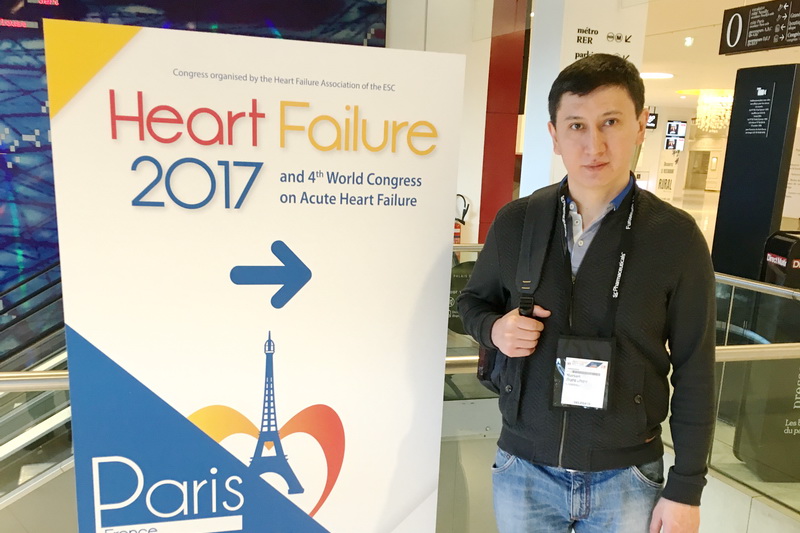

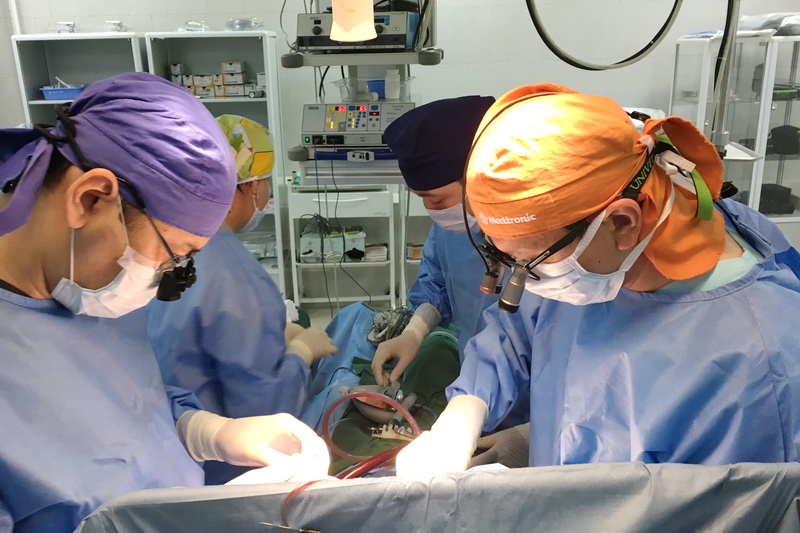
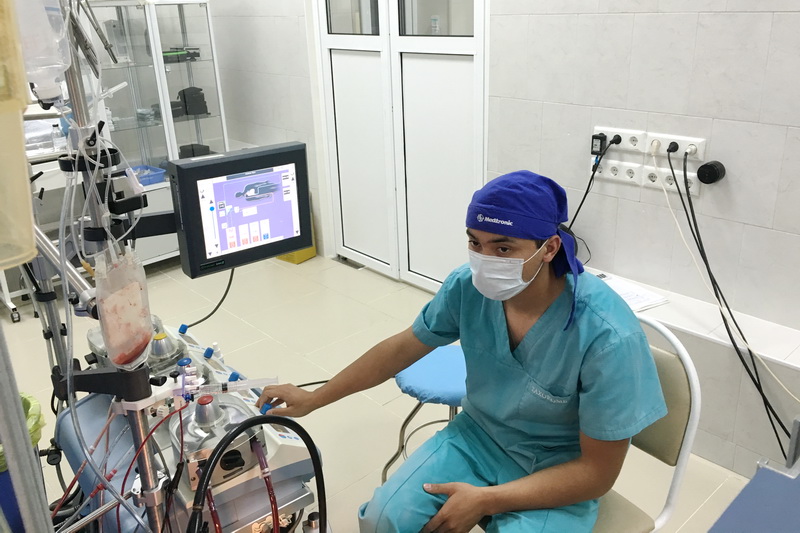
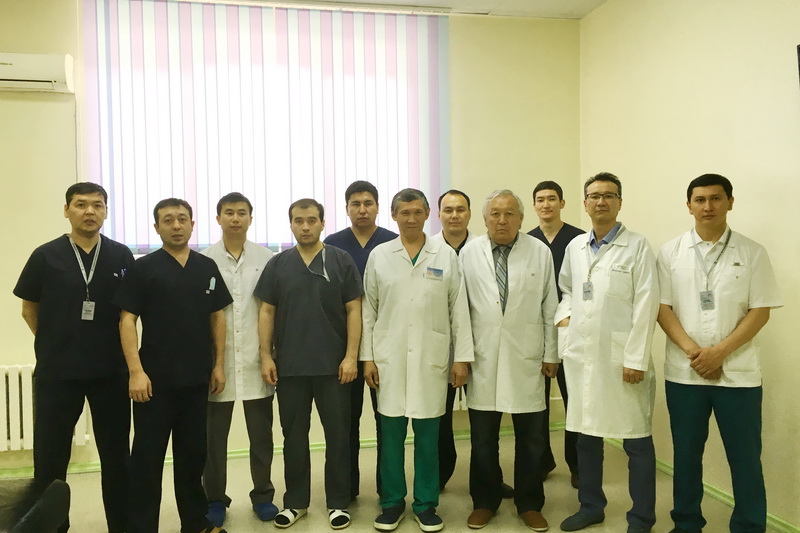
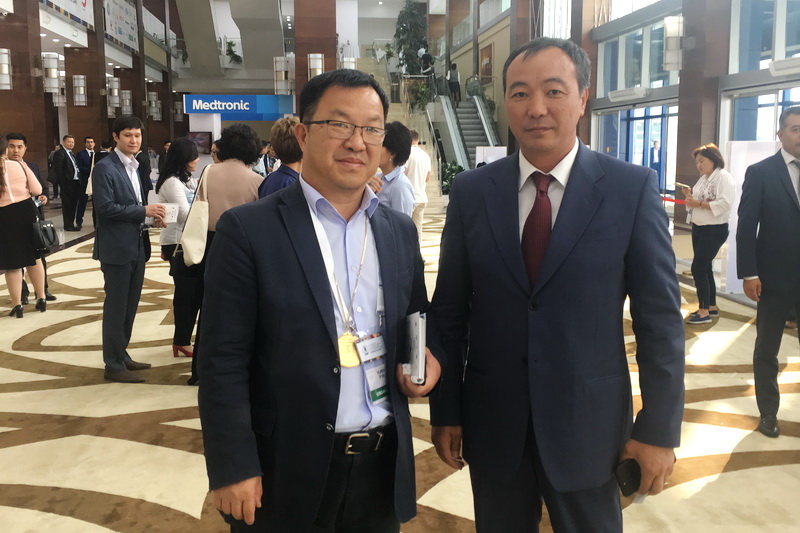
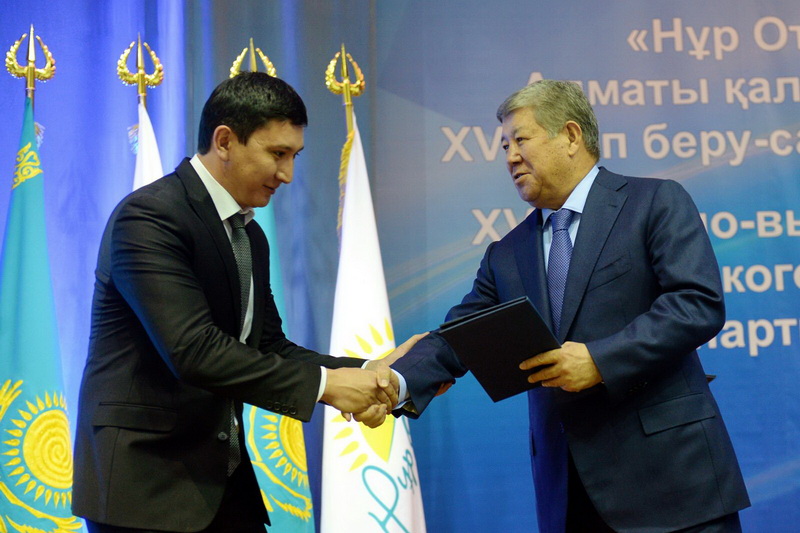
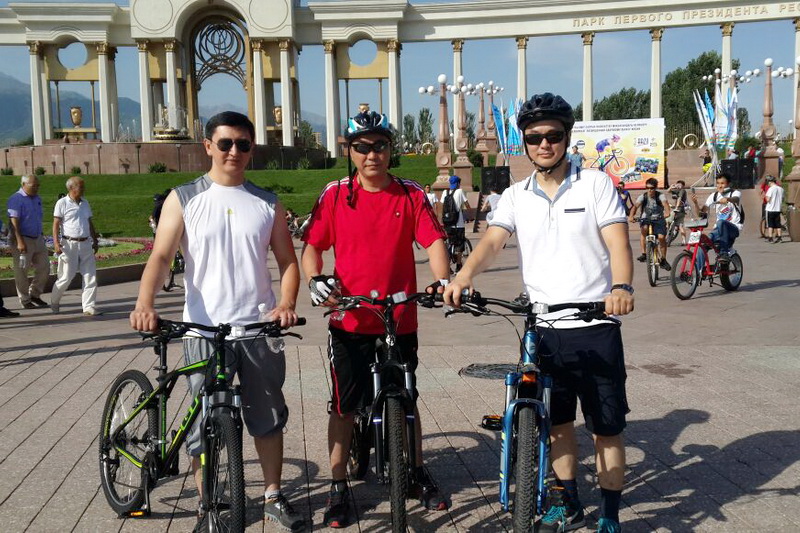
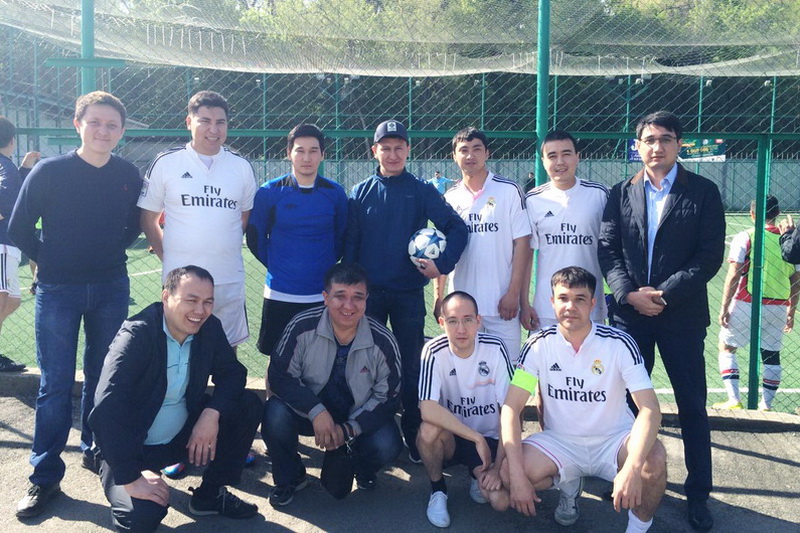


 Address
Address